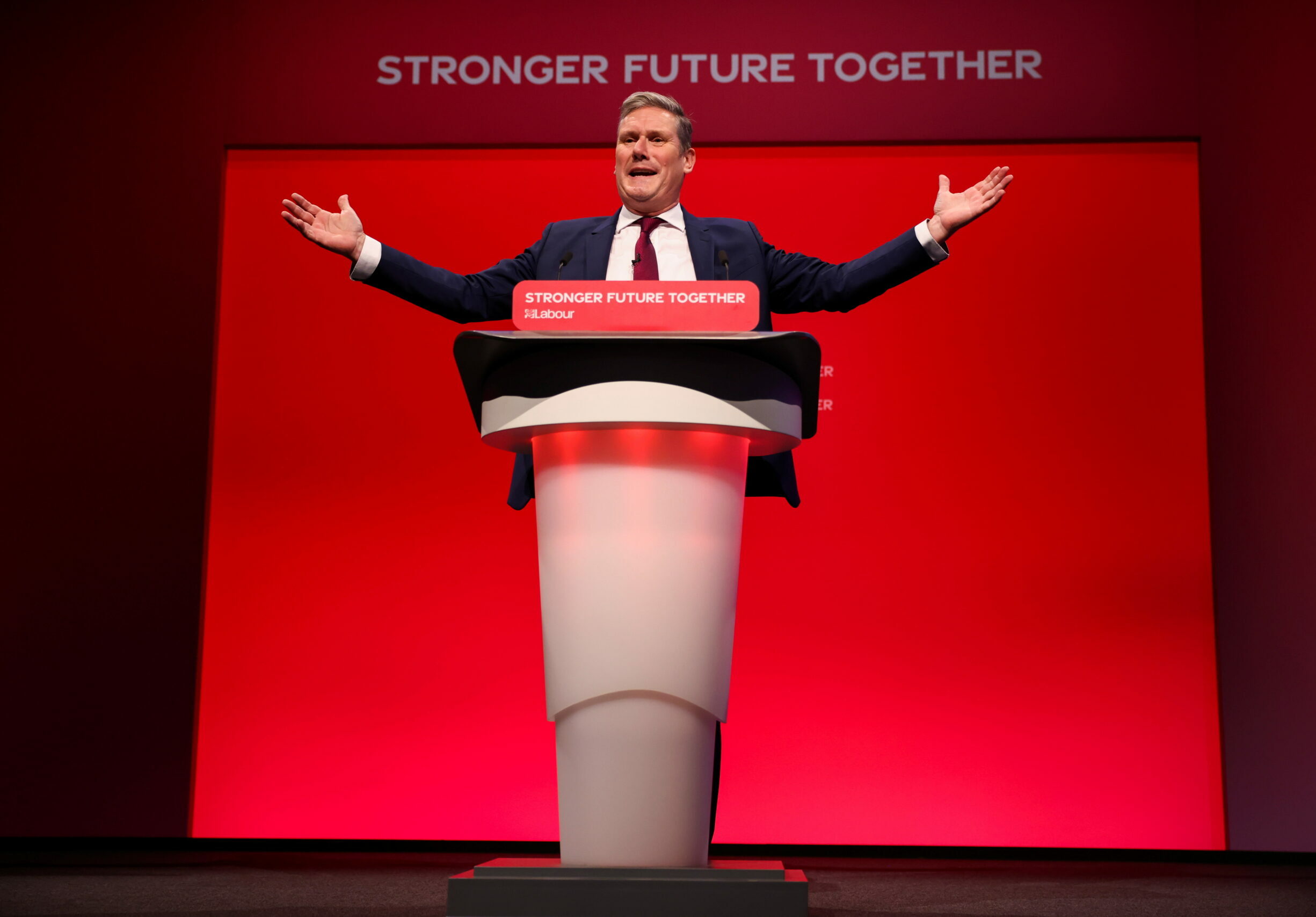Why is Labour Broke?
It’s got more to do with Starmer than anything Corbyn did wrong.
by Aaron Bastani
27 January 2022

Labour’s Rachel Reeves claimed her party’s shambolic finances were “another inheritance from the former leadership” in an interview with the Financial Times (FT) last week. While the FT’s fearless journalists failed to challenge her, the truth – according to the figures – is rather different. Under Jeremy Corbyn, who Reeves gleefully sought to blame for Labour’s predicament, the party enjoyed its healthiest finances in decades – despite having to contest a torrent of elections between 2017 and 2019. According to the Electoral Commission, Labour raised a record £55.8m in 2017 – £10m more than the Tories.
Given Reeves is the shadow chancellor, and would like to run the country’s finances, such invention is especially concerning. Not only does it undermine Reeves’ credibility as an honest voice on such matters, but it makes clear she is happy to blame others, no matter how implausible, for mistakes being made in the present. If a socialist politician had responded in such a way – with what can only be described as lying – it would be highlighted as exemplifying the populist tendency to evade scrutiny through deceit. In this instance, however, Reeve’s wasn’t even fact-checked.
A brief look at the numbers would have shown that in addition to 2017, Labour reported an enormous income in 2019, when the country held not only a general election in December but local and European elections in May. Across the entire year, Corbyn’s party was able to outspend the Conservatives, whereas in the 2015 general election Ed Miliband’s Labour was massively outspent. Such a turnaround was the result of the party’s swelling membership, which at its peak under Corbyn reached 600,000 in 2016 – quadruple its size under Miliband just a year earlier. Despite such an impressive reversal – a far cry from when the party actually faced bankruptcy a decade earlier – there was a flurry of negative stories about the party’s finances. Yet those siren voices, as Labour demonstrably enters dire straits, are now strangely silent.
Reeves went even further than omitting the facts, however, proffering instead an inversion of the truth – yet she went unchallenged. Lies might wash as the leadership destroys its own revenue model – particularly with Westminster journalists who are ideologically aligned – but such huckstering won’t be enough if Reeves is ever in charge of the nation’s spending and economic growth. As we’ve found out with David Cameron, Theresa May, and now Boris Johnson, it’s vital that the media scrutinises would-be leaders. Now, as before, they seem distinctly disinterested, once more failing in a matter of vital public interest.
Labour’s membership is falling.
So why is Labour broke? Is the party’s present situation, as Reeves and others claim, the result of legal cases which the previous leadership is responsible for?
On even the most basic inspection – something which few in the media appear capable of – such an argument disintegrates.
Labour’s finances are in a slump because members are leaving – something celebrated by Reeves in that same FT interview. Alongside that exodus, with as many as 150,000 members departing since January 2020 – unions have slashed funding as the Starmer leadership has repeatedly broken its pledges. While offering staff a below-inflation pay rise last month – something many Labour MPs admonish elsewhere but have no issue with at home – the party’s apparatus claimed £1.6 million had been lost from union contributions, and a further £1.5 million from members leaving.
The numbers are hardly complicated. Even if you assume that all of those 150,000 former members had been paying the lowest possible rate (£2.34 a month) that still totals an extraordinary £4.2 million a year. In reality, the figure is likely closer to double that. According to even those supportive of Starmer, membership is down 120,000 on January 2020 (though it should be added that 20-30,000 are usually in ‘arrears – behind on payments but still formally members – something which compounds the claim of 150,000). The idea legal costs are to blame – including those payments made by Starmer and Evans, which allegedly ran contrary to legal advice they received – is utterly absurd.
Yet Reeve’s nonsensical claims did not merit pushback by the intrepid journalists at the FT. Nor is it mentioned that rolling payments – as is the case with members’ subscriptions – are always preferable to one-off donations. As Evans and Starmer pursue high-value donors, with little success so far, that will become painfully obvious.
It says volumes about our political culture, and media, that a politician actively celebrating the principal cause of financial ruin in her own party is viewed as serious on spending taxpayers money. We should judge politicians by what they do as much as what they say – if not more so.
Given the media’s propensity to lament “fake news” when it comes to perceived populists, it is hypocritical that journalists not only refuse to acknowledge the inarguable reason for Labour’s perilous finances, but instead repeat the briefings of those responsible as they evade basic scrutiny. This offers a glimpse into how the media, and establishment politicians, prop one another up – mirage-like – to maintain a confected charade of mutual benefit. But as money runs short at Labour’s Southside HQ, it’s hard to see how that’s sustainable. Eventually, you don’t just run out of other people’s money, you also run out of predecessors to blame for your own ineptitude.
Aaron Bastani is a Novara Media contributing editor and co-founder.


